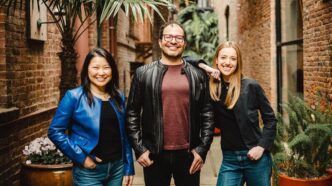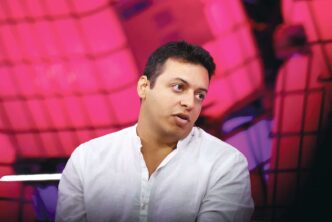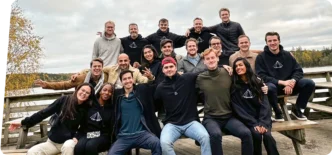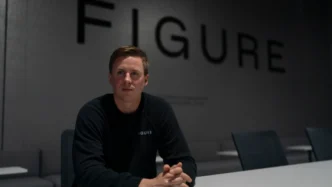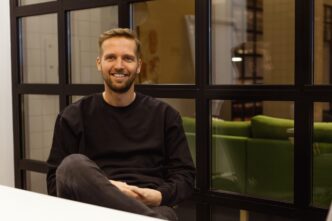In Silicon Valley, where familiar names often dominate the spotlight, Ali Partovi has quietly built an outsized influence without becoming a household name. An Iranian-born Harvard graduate, Partovi racked up major wins early — helping launch LinkExchange, which Microsoft bought for $265 million in 1998, co-founding iLike, later acquired by MySpace for around $20 million, and creating the educational nonprofit Code.org with his twin brother, Hadi. Together, the Partovi brothers also placed early bets on future giants like Facebook, Airbnb, and Dropbox.
For years, insiders saw the Partovi name as a strong signal of a startup’s potential. But today, Ali’s reputation is breaking out far beyond the tech elite, thanks to Neo, the venture firm he started eight years ago with an ambitious promise: to discover and nurture future startup stars earlier and better than anyone else.
And now, Neo has proof it’s working.
Among its standout investments, Neo was the first institution outside Twitter to back Bluesky, the decentralized social network that hit a $700 million valuation earlier this year. Neo also funded Kalshi, the prediction market platform that gained major traction during the last U.S. presidential election.
Speaking about Neo’s mission, Partovi reflected confidently: “This year, for the first time, I can conclusively say we are discovering the future superstars before anyone else.”
A meeting in 2019 tells the story best.
That year, Michael Truell was a freshman at MIT and interning at Google when a fellow student suggested he meet Partovi. During their hour-long chat, Partovi handed Truell a handwritten coding test — something he often did back when he and Hadi co-invested. These technical tests weren’t rigid exams; they sparked deeper conversations about potential.
Truell finished the test in just 15 minutes, impressing Partovi and kickstarting a mentorship that would change both their futures.
Backed first by Partovi, Truell went on to co-found Anysphere, the company behind the AI-powered coding editor Cursor. Today, Cursor is flirting with a jaw-dropping $10 billion valuation — setting up one of Neo’s biggest wins yet.
Much like Y Combinator reimagined startup funding, Neo is reshaping venture capital by focusing not on themes or industries, but on exceptional individuals. Often, Partovi identifies future founders while they are still college students, nurturing their growth long before they launch companies.
Neo runs a Neo Scholars program, offering $20,000 gap-semester grants to about 30 students each year — no strings attached, no equity taken. Then, in 2022, Partovi expanded with a formal accelerator that funds and mentors 20 startups annually.
“I try to coax them into taking bigger risks and aiming higher than they think they can,” Partovi said of his approach.
Of course, it takes serious patience. Since Neo’s early days, Partovi has traveled across the country, personally interviewing students, administering coding challenges, and hunting for what he calls “tomorrow’s changemakers.”
Clearly, the strategy is working.
Beyond Anysphere and Kalshi, Neo scholars have founded Cognition (a coding assistant company recently valued at $4 billion), Pika Labs (which is building a text-to-video AI tool now valued at $700 million), and Chai Discovery (which secured $30 million from OpenAI and Thrive Capital to push forward a foundation model for molecular prediction).
“Last year, every one of OpenAI’s new grad hires was a Neo scholar,” Partovi shared proudly.
When scouting talent, Partovi focuses on three key traits: technical skill, an entrepreneurial spirit, and a deep urge to challenge the status quo. But there’s a fourth trait he believes is most vital: magnetism — the ability to inspire others to join their mission.
“I ask myself: if this person started something, how likely would their smartest friends be to join them?” Partovi explained.
This was obvious in Truell, whose quiet confidence convinced Partovi that his most brilliant MIT peers would rally behind him.
As Neo’s reputation grows, so does competition. Applications for its programs have doubled every year. But unlike other firms, Neo resists the temptation to expand rapidly, choosing to stay selective to maintain quality.
The same discipline shows in its fundraising. While many firms chase ever-larger funds, Neo just closed $320 million — only a modest increase over its $235 million round in 2023. Notably, Partovi personally invested more of his own money into this fund than all previous Neo funds combined.
Some of Neo’s high-profile backers include Sheryl Sandberg, Bill Gates, and Reid Hoffman, who wrote one of Neo’s very first checks in 2017.
Though Partovi remains cautious about discussing financial returns, the early signs are impressive. Neo’s first fund has tripled or quadrupled its value — with room to grow even further — while the second fund has already doubled thanks largely to the Anysphere investment.
Asked about the tough IPO and M&A market today, Partovi offered advice that cuts against Silicon Valley’s traditional money-first mindset.
Instead of focusing on quick exits, he urges founders to build products that truly serve people: “Obsess less about making money and more about serving other humans,” he said. “When you build something wonderful, the money follows.”
